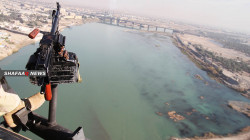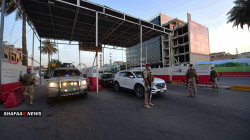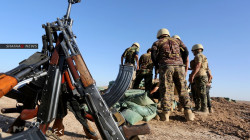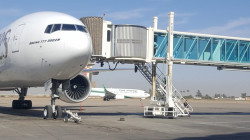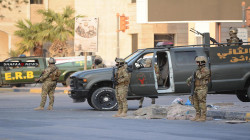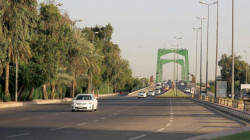Al-Sadr praises the "liberation" of the Green Zone
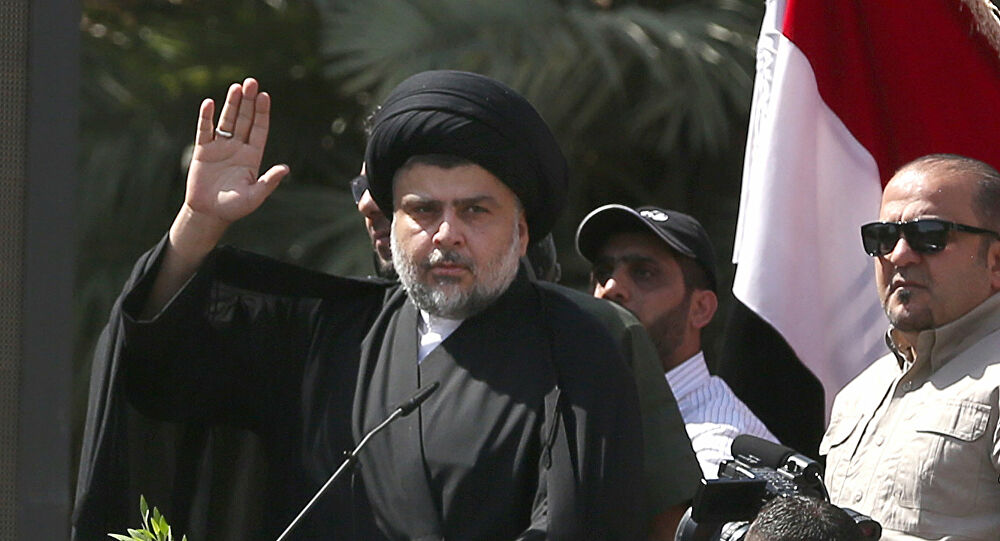
Shafaq News/ The leader of the Sadrist movement, Muqtada al-Sadr, on Sunday announced the "liberation" of the Green Zone, calling on his followers to push for a complete overhaul of the political system, including a new constitution, and expel the country's elites whom he condemned as corrupt.
"The peaceful spontaneous revolution that liberated the Green Zone is a golden opportunity to all the people who beared the brunt of injustice, terrorism, corruption, invasion, and dependence," the firebrand Shiite cleric tweeted.
Al-Sadr said that a "first golden opportunity" was missed back in 2016, deeming the recent developments a "great opportunity for a radical change in the political system, constitution, and election."
Addressing the people of Iraq, the populist leader called for disarming the militias, tightening the grip of law, and prosecutes the militias and corrupt people.
"You are responsible, you are all at stake," he concluded, "either an Iraq that stands high among the nations or a dependent Iraq that is controlled by proxies and corrupt people, and hands from the east and the west."
World and regional powers have expressed their concerns over the political escalation in Iraq after the seizure of the parliament building by the mercurial cleric supporters, pushing a months-long struggle to form the next government into uncharted territory.
The brinkmanship has rattled his political opponents, some of whom command well-armed militia groups linked to Iran. This has led to fears of renewed civil war, since al-Sadr also commands large numbers of armed supporters.
For the second time in less than a week, al-Sadr flexed his muscles, ordering thousands of his followers back to the heavily fortified government complex on Saturday. Despite security forces using tear gas and water cannons, the crowds tore down concrete blast walls protecting the site.
Once inside the sprawling complex known as the Green Zone -home to key government buildings including the cabinet office, parliament, foreign embassies and residences of senior politicians- they announced an open-ended sit-in.
At least 125 people —100 protesters and 25 security personnel, were wounded, according to the Health Ministry.
Al-Sadr, who is conveying his messages and instructions to the protesters through aides on social media, has not yet declared his demands clearly or responded to calls for dialogue.
Emerging as a clear winner in October's national election with 73 seats in the 329-seat parliament, al-Anbar's Sadr sought to form a majority government with Sunni and Kurdish allies, sidelining his Iran-backed rivals, the Coordination Framework.
But the CF — an umbrella group that consists of influential Tehran-allied militias and political parties — with some smaller parties not directly aligned to Tehran derailed al-Sadr’s efforts through different means.
A series of legal challenges and parliament session boycotts to block candidates put forward by al-Sadr's allies for the role of president, a vital step in government formation, combined with alleged intimidation tactics, forced him to order his MPs to resign last month.
That has given the CF the lead to form the government. In the past week, al-Sadr voiced a series of angry objections when the CF nominated Shiite politician Mohammed Shiaa al-Sudani for the role of prime minister.
He has called al-Sudani a "shadow" of his rival, former prime minister Nouri Al Maliki, one of the senior CF leaders. The years-long antagonism between the two men has been one of the reasons behind the delay in forming a new government, more than 10 months since national elections were held.
As the CF pushed to hold a parliament session on Thursday to choose a new president — who in turn has to task the largest political bloc to nominate a prime minister, al-Sadr's followers briefly occupied parliament. Al-Sadr said the move was a "warning".
As the parliament planned to hold a session on Saturday, the Sadrists once again entered, prompting the parliament speaker to suspend all sessions until further notice.
The quickly unfolding events have raised the stakes and deepened the struggle for influence between al-Sadr and his Iran-backed rivals.
